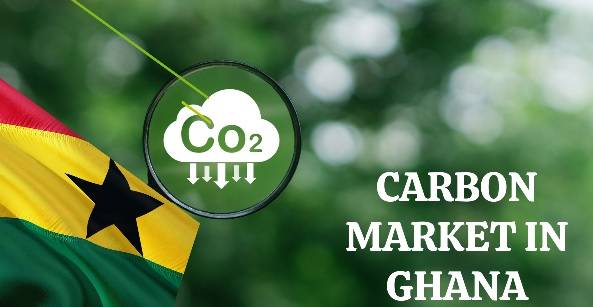Ghana’s Carbon Market: A Billion-Dollar Opportunity by 2030
Introduction
Ghana's carbon market is gaining significant attention as it is projected to generate over $1 billion by 2030. This ambitious target has sparked curiosity among investors, environmentalists, and policy makers alike. With growing global interest in sustainable practices and carbon reduction strategies, Ghana is positioning itself as a key player in the carbon trading ecosystem.
What is Carbon Trading and Why Does it Matter?
Carbon trading is an economic approach to reducing carbon emissions. It allows companies and countries to buy and sell carbon credits, essentially trading the right to emit a certain amount of carbon dioxide. This market-driven approach incentivizes emission reductions, fostering a more sustainable global environment.
Why Ghana’s Carbon Market is Poised for Success
Ghana’s carbon market is uniquely positioned due to the country’s commitment to sustainable development and the implementation of innovative climate policies. Recent government initiatives have focused on forest conservation, renewable energy projects, and carbon credit generation. These efforts are not only environmentally beneficial but also financially lucrative.
Economic Impact: Over $1 Billion by 2030
According to a recent report, Ghana’s carbon market could exceed $1 billion in revenue by 2030. This projection is driven by increasing global demand for carbon credits and Ghana’s strategic investments in carbon offset projects. This could position Ghana as one of Africa’s leading carbon trading hubs.
The Role of International Partnerships
Partnerships with international organizations and private investors play a crucial role in Ghana’s carbon market growth. These collaborations enable the transfer of technology and expertise, helping Ghana scale its carbon reduction projects.
How Local Communities Benefit
The carbon market’s growth also brings socioeconomic benefits to local communities. Initiatives aimed at forest conservation and renewable energy generation often include community participation, creating jobs and promoting sustainable practices at the grassroots level.
Challenges and the Way Forward
Despite its potential, Ghana’s carbon market faces challenges including regulatory bottlenecks, limited local awareness, and infrastructural constraints. Addressing these issues will be essential for maximizing the market’s economic and environmental potential.
Conclusion
Ghana's carbon market is not just a win for the environment but also a promising economic venture. As the world continues to prioritize carbon reduction, Ghana’s proactive approach positions it for remarkable success by 2030.
Stay Updated on Ghana’s Carbon Market
For more insights and updates on Ghana’s carbon market and other trending news, follow us on our WhatsApp Channel and Facebook Page. Stay ahead of the news and be part of the conversation!



